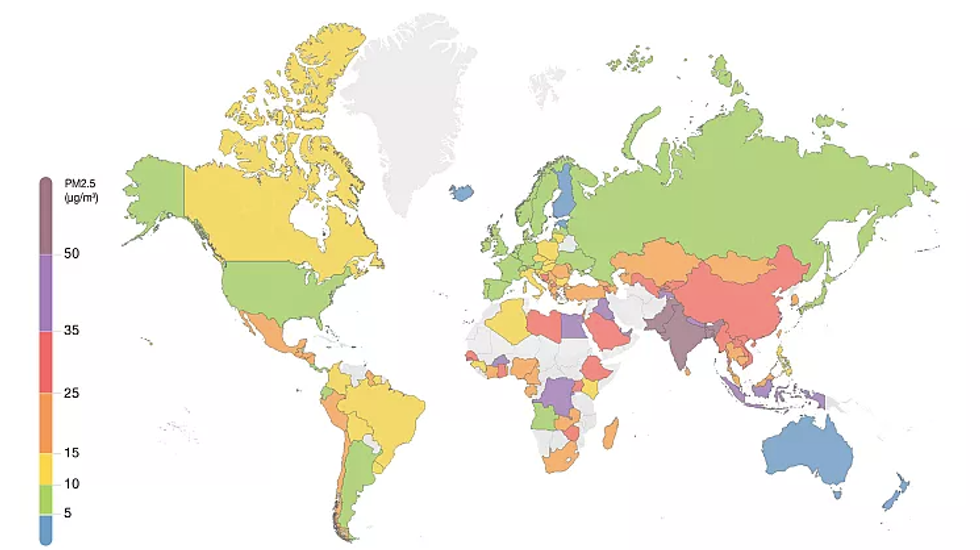Gregory Robinson
Dec 20, 2024
Mexico: Poor Air Quality In Mexico City And State Of Mexico
StringersHub - Vertical / VideoElephant
Only seven countries in the world had safe air pollution levels in 2023 and three of these countries are in Europe.
The World Air Quality report by IQAir, a Swiss air quality technology company, draws data from more than 30,000 monitoring stations in 134 countries, regions and territories.
Of the 134 locations, 124 were found to breach safe levels of PM2.5 (fine particulate matter), according to guidelines set by the World Health Organisation (WHO).
PM2.5 are tiny particles in the air that are 2.5 micrometers or less in diameter. Smoke, soot, dust, dust, and metals are just some of the sources that can produce these microscopic particles. They can be a serious health risk, and have been linked to increased asthma risk, high blood pressure, and lung disease.
The safe guideline is five micrograms per cubic metre of air (µg/m3) and the seven countries that met these guidelines, or had less, are Australia, Estonia, Finland, Grenada, Iceland, Mauritius, and New Zealand, according to the report which reflects 2023 figures.
Puerto Rico, Bermuda, and French Polynesia were also found to be within safe levels.

Iceland had the cleanest air in Europe, with 4µg/m3. Estonia was second with 4.7µg/m3 and Finland in third place with 4.9µg/m3.
The countries with the worst air quality in the world include Bangladesh, with 79.9 µg/m3, Pakistan, India, Tajikistan, and Burkina Faso.
“A clean, healthy and sustainable environment is a universal human right,” Frank Hammes, Global CEO of IQAir, said per Euronews. “In many parts of the world, the lack of air quality data delays decisive action and perpetuates unnecessary human suffering.
“Air quality data saves lives. Where air quality is reported, action is taken, and air quality improves.
“In 2023, air pollution remained a global health catastrophe,” he said. “IQAir’s global data set provides an important reminder of the resulting injustices and the need to implement the many solutions that exist to this problem.”
Air pollution is a major topic that has a massive impact on all of us. Recently, researchers at the University of Tartu and the University of Reading discovered how industrial pollution can cause liquid clouds to turn into ice clouds when the weather is cold.
Sign up for our free Indy100 weekly newsletter
How to join the Indy100's free WhatsApp channel
Have your say in our news democracy. Click the upvote icon at the top of the page to help raise this article through the Indy100 rankings
Top 100
The Conversation (0)














